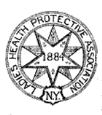Women's Health Protective Association


Women's Health Protective Association (WHPA) was a pioneering organization established in the late 19th century, focused on improving public health and sanitation standards in urban areas, particularly in New York City. The association was instrumental in advocating for cleaner streets, better waste disposal methods, and the reduction of air and water pollution. Its efforts were among the early examples of organized public health reform in the United States, marking a significant contribution to the environmental and public health movements.
History[edit | edit source]
The Women's Health Protective Association was founded in 1890 by a group of women concerned about the health hazards posed by the unsanitary conditions of New York City at the time. The city was facing severe problems related to waste disposal, air pollution from industrial sites, and contaminated water supplies. The WHPA's formation was a response to these challenges, with its members taking an active role in lobbying for legislative change and public awareness.
Activities[edit | edit source]
The WHPA engaged in a variety of activities aimed at improving public health. These included:
- Campaigning for the removal of garbage and debris from streets and public areas.
- Advocating for the establishment of waste treatment facilities to properly process sewage and industrial waste.
- Promoting the purification of the city's water supply to prevent waterborne diseases.
- Organizing public lectures and educational programs to raise awareness about the importance of sanitation and public health.
- Collaborating with other organizations and government bodies to implement health and sanitation reforms.
Impact[edit | edit source]
The efforts of the Women's Health Protective Association had a significant impact on public health policies and practices. One of its notable achievements was its role in the passage of legislation aimed at reducing air pollution and improving waste management. The WHPA's advocacy also contributed to the development of modern sanitation systems in New York City, which became a model for other cities facing similar challenges.
Legacy[edit | edit source]
The legacy of the Women's Health Protective Association is seen in its contribution to the establishment of environmental health as a recognized field of public health. The organization's work laid the groundwork for future environmental and public health advocacy groups, highlighting the importance of civic engagement in addressing public health issues.
See Also[edit | edit source]
Search WikiMD
Ad.Tired of being Overweight? Try W8MD's physician weight loss program.
Semaglutide (Ozempic / Wegovy and Tirzepatide (Mounjaro / Zepbound) available.
Advertise on WikiMD
|
WikiMD's Wellness Encyclopedia |
| Let Food Be Thy Medicine Medicine Thy Food - Hippocrates |
Translate this page: - East Asian
中文,
日本,
한국어,
South Asian
हिन्दी,
தமிழ்,
తెలుగు,
Urdu,
ಕನ್ನಡ,
Southeast Asian
Indonesian,
Vietnamese,
Thai,
မြန်မာဘာသာ,
বাংলা
European
español,
Deutsch,
français,
Greek,
português do Brasil,
polski,
română,
русский,
Nederlands,
norsk,
svenska,
suomi,
Italian
Middle Eastern & African
عربى,
Turkish,
Persian,
Hebrew,
Afrikaans,
isiZulu,
Kiswahili,
Other
Bulgarian,
Hungarian,
Czech,
Swedish,
മലയാളം,
मराठी,
ਪੰਜਾਬੀ,
ગુજરાતી,
Portuguese,
Ukrainian
Medical Disclaimer: WikiMD is not a substitute for professional medical advice. The information on WikiMD is provided as an information resource only, may be incorrect, outdated or misleading, and is not to be used or relied on for any diagnostic or treatment purposes. Please consult your health care provider before making any healthcare decisions or for guidance about a specific medical condition. WikiMD expressly disclaims responsibility, and shall have no liability, for any damages, loss, injury, or liability whatsoever suffered as a result of your reliance on the information contained in this site. By visiting this site you agree to the foregoing terms and conditions, which may from time to time be changed or supplemented by WikiMD. If you do not agree to the foregoing terms and conditions, you should not enter or use this site. See full disclaimer.
Credits:Most images are courtesy of Wikimedia commons, and templates Wikipedia, licensed under CC BY SA or similar.
Contributors: Prab R. Tumpati, MD
